NJW&C 04: Telling Other Peoples’ (and other Mutants’) Stories

Hey, Kids! It’s Nice Jewish Words & Comics!, the latest installment from Neil Kleid's monthly newsletter with updates and info about his latest projects!
And we’re back with a brand new look. First things first, before we get to the nice words: two bits of housekeeping. Distasteful administrative stuff and promotion, but it’s gotta be done. Thanks for bearing with me!
HOUSEKEEPING, THE FIRST: WHY’D WE MOVE TO BUTTONDOWN?
Yes, Migdal has changed newsletter providers from our original home at Substack to our swank new streamlined digs at Buttondown. Why you say? Basically, the kid’s got principles. Look, I know a lot of folks I love and respect who have been running their newsletters off Substack for a while now—the UI is nice, and it’s easy to maintain, some of them also got a little money to be there, and the archive is a bit unwieldy to migrate at this point. Me, I just started this thing a few installments ago. Once the above was brought to my attention, especially with a newsletter that’s so proudly Jewish, I found it hard to stay on that platform. I’m still leaving up the archive there for the installments that did go out; maybe one day Substack will address why they’re so visibly and happily platforming Nazis and white supremacists. Maybe they won’t. If they do, maybe we’ll go back. Maybe we won’t.
For now, though, welcome to Buttondown~ Like the X-Men’s Kitty Pryde, I hope we all survive the experience.
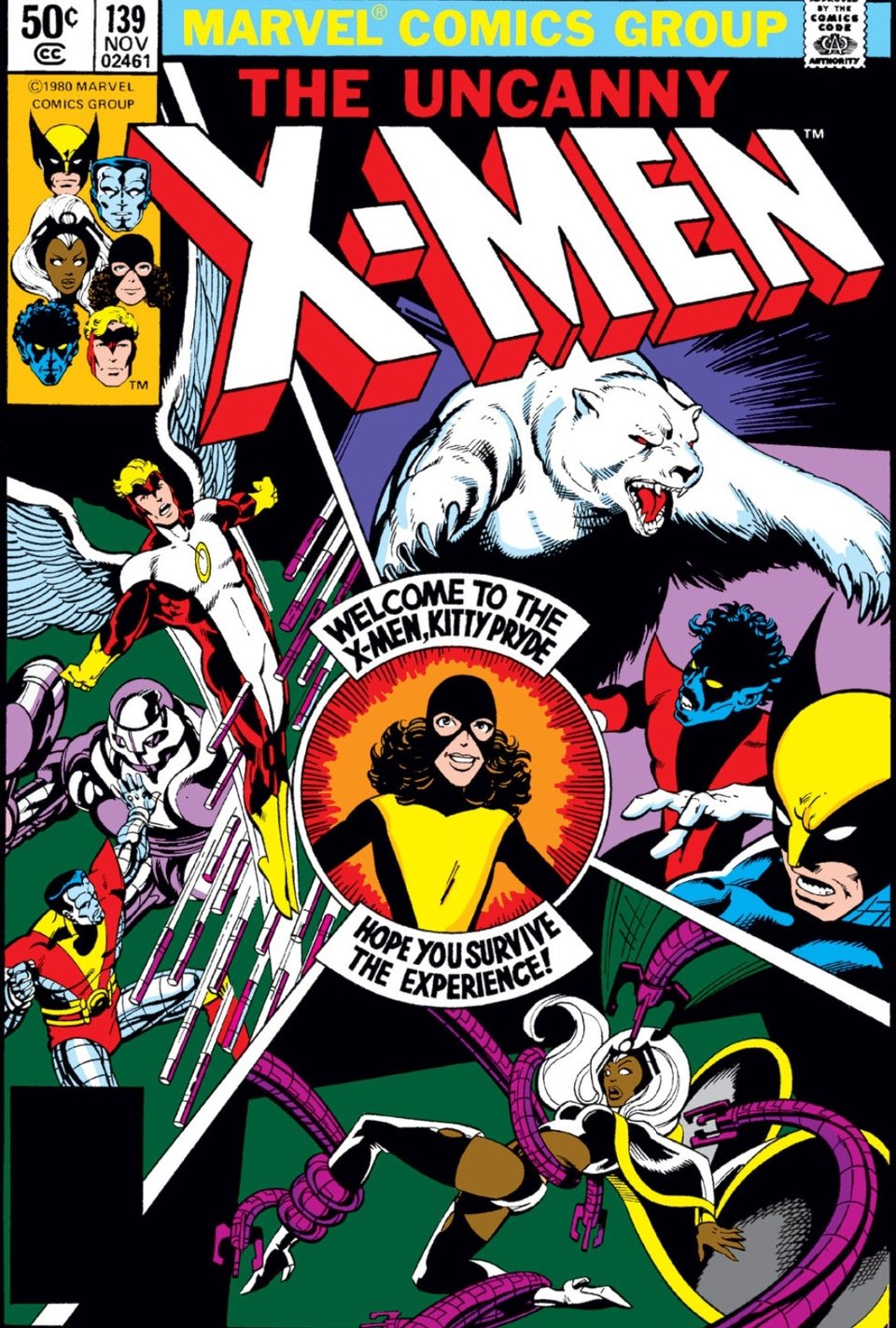
HOUSEKEEPING, THE SECOND: NICE JEWISH BOYS #2
It’s the first week of December, which means not only is the year about to wrap (more on that below) but there’s a brand-new issue of Nice Jewish Boys out in the world! Yes, Issue #2 of our (our = me, John Broglia, Ellie Wright, Sarah Litt) intimate little suburban crime comic book set in Teaneck, New Jersey, became available from Comixology Originals on December 5th, and you can now buy, read and share the second installment of our story, and find out what happened after issue #1’s wonderful cliffhanger.
How can you support our amazing comic?
Download the Amazon Kindle app on your respective mobile devices, and get registered (if you aren’t already registered)
Read the issue inside the Kindle app or on read.amazon.com
Maybe leave a good review for the issue on Amazon if you liked it? Then tell your friends, family, enemies, interested readers on your social media channels? Maybe do both?!
Accept the hearty of thanks of the creative team and everyone at Comixology who made the issue happen.
Here’s the first review of issue #2: “Kleid’s strong writing takes readers deeper into the challenges of being a criminal and caring family man.”
Here’s an interview I did with the Comics Beat at JewCE about Nice Jewish Boys and my thoughts about Jewish representation in comic books.
Nice Jewish Boys #3 comes out in early January. It’s an issue that may start dividing our readership, to be honest, and I’m a bit interested (nervous) to see how it lands. We’ll get you the pre-order link once it’s up, but in the meantime, here is the cover and solicitation text:
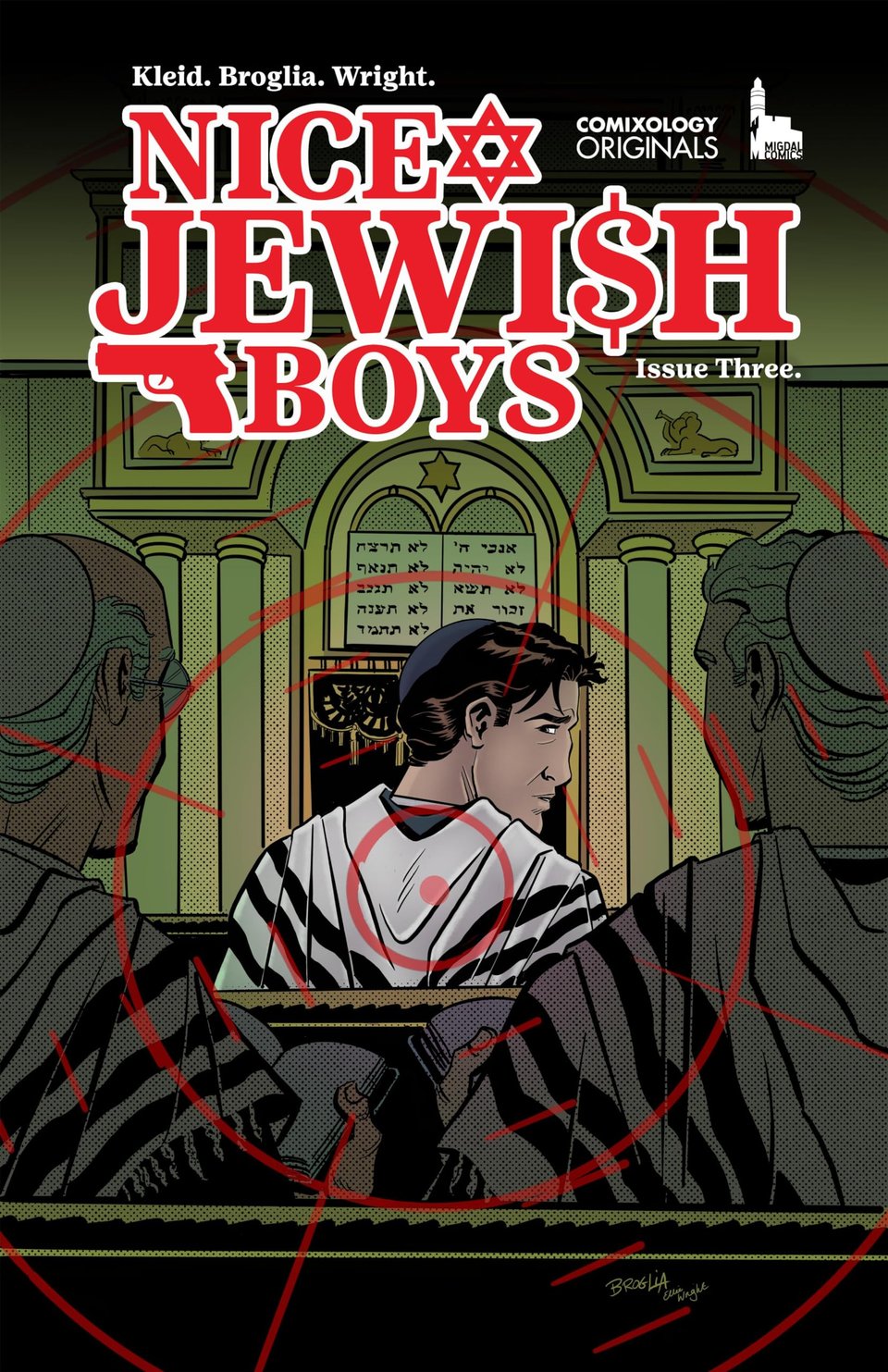
Jake finds himself overwhelmed by the lies he’s telling his wife, Chaim, and the Feds…though Agent Hamlin’s patience is starting to thin. When his relationship with the Avodah self-destructs due to a controversial town parade, Jake finally must decide where his loyalties lie…before it’s too late.
OKAY, NOW THAT THE HOUSEKEEPING’S DONE
Last month, I was privileged enough to participate in a panel at JewCE entitled “Telling Other Peoples’ Stories”, sitting on a dais with Stephanie Phillips, Koren Shadmi, Tracy White and moderator Julian Voloj. It was a great conversation about research, being entrusted to write stories from the perspective of real people that are not you (nor are their stories or lived experiences) or from characters that are not your own, not owned by you as an author. If interested, the entire panel was recorded and can be viewed and listened to here.
Now, I’ve been lucky enough to write books and comics that are not only Jewish in nature but also based on the lives of people hailing from differing gender types, and also from racial and religious backgrounds other than my own. I did it for The Panic, for Savor, and other books, as well. If you attended or watched the panel, one of the things I explained was how much research goes into not only ensuring the facts of a comic or graphic novel’s plot, setting or dialogue, but also ensuring that when telling a story that isn’t your own, that it feels authentic—the words, the clothes, the hair, the way a person might react or think or feel, a true representation of a people or culture that isn’t your own. When you’re a forty-eight year old Jewish male from New Jersey by way of Detroit, going out and telling the story from the point of view of someone who is decidedly…not that, well, there’s a huge level of responsibility involved. And for The Panic—the main ensemble of which depicted a melting pot of New Yorkers—I went as far as to insist on hiring a Diversity and Inclusion Specialist to help ensure the stories and points of view of characters from backgrounds other than my own were depicted authentically, in a way that felt honest and would not offend because of any unlearned ignorance on behalf of the author (i.e, this guy).
But that’s not what I want to talk about. Let’s discuss licensed stories and characters.
So, there’s been a video circulating this past week that (to paraphrase) is a request (putting it politely) by a long-time comic book retailer for writers to stop injecting themselves into long-established licensed / franchise characters when it comes to taking the reins on their respective comics. I’m not going to link to the video, but to quote him:
“Most of these new writers…all they care about is, ‘how can I put myself in the book?’…we don’t care who you are. You’re writing Tony Stark; you’re not writing yourself in the book. If that’s the case, write your own comic with yourself in it, and no one will read it, because nobody cares. People grew up loving (names a bunch of characters)…we don’t need you to put your input in it. Just write Steve Rogers. Don’t write ‘what would Steve Rogers be if I was Steve Rogers.’ That’s not how it works.”
Now, it’s my understanding that this was a snippet from a longer video, but I wanted to talk about what it has meant, to me, to write licensed characters that have long-time fans. Before I do, I also want to say I’m by no means discounting this retailer’s feelings (I mean, I don’t know the guy): he’s got a store, and he’s trying to sell comic books. If he has a viable opinion as to why he believes the books aren’t selling—which hurts his business—who am I to say his opinion isn’t valid? It’s just as valid as those of us who may believe otherwise, right? That said, it did get me thinking about my feelings regarding being entrusted with licensed or franchise characters, which I’ve been privileged enough to do.
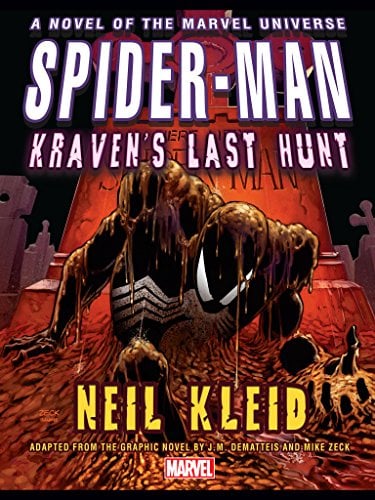
the classic Spidey story by J.M. DeMatteis & Mike Zeck
So, I said it at the JewCE panel: I was a comic book fan first, a writer second. I’ve been invested in the stories about some of the characters I’ve written—Spider-Man, Wonder Woman, the X-Men, Perry White—far longer than the start of my writing career. As a fan, when I’m writing something (for a licensed character), I approach every opportunity as my last and, like I said in the video, I present the character as I would want to read that character. I won’t totally change that character’s persona or dynamic—as I said on the panel, Spider-Man isn’t going to be presented in a way that he’s not going to be normally presented. That, to me—again, as a fan—is really important. It’s riding the line as to what has come before, paying homage to the creators who invented these characters and added layers to that character’s history and evolution over the years…and also being able to tell your own story.
As I say in the video, it’s an interesting balancing act—telling a story about a character that does that character justice, but also improves upon that character’s legacy and tells a story that hasn’t been told before.
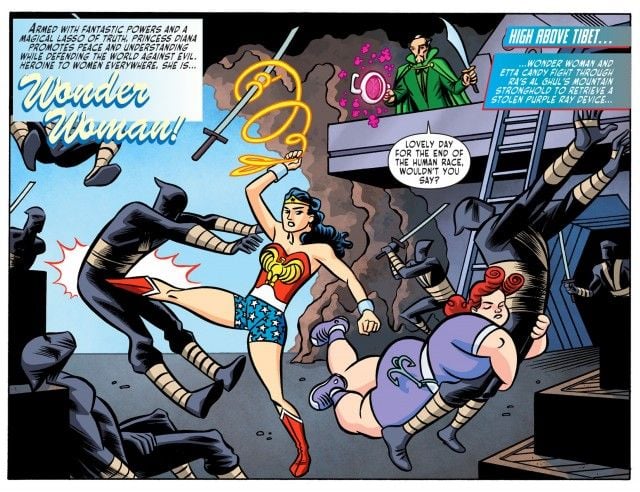
At the end of the day…as a writer of licensed characters, I don’t think there is ever a case where that writer can divorce themselves from who they are and their world view. Even Stan Lee and Jack Kirby, when they invented some of the classic, legacy Marvel characters—Iron Man, Hulk, X-Men, etc—and the creators this retailer says “just wrote” Tony Stark or Steve Rogers, they were investing bits of themselves as creators into those characters. I mean, Peter Parker wasn’t created in a vacuum, nor were Tony or Steve. Stan was influenced by his own life, his own experiences, and that shaped who those characters were and their stories. And yeah, as the years went by—and other stewards came in to tell the next chapters in those characters’ lives—it’s only natural that the characters would evolve and grow because of the times, social and cultural (and yeah, political) influences, as well as emotional.

Steve Engelhart wrote Avengers in a much different way than Stan did, or did Roy Thomas, Roger Stern, Kurt Busiek, Bendis, Hickman, Aaron…heck, every single writer approached these characters from the point of view not only of what had come before, but also where the characters lived at the time they were writing them. If Steve Rogers didn’t change and grow as a human being from 1975 to 2023, to challenge who he was a person and how that person is affected by the changing times, that’d get stagnant pretty quickly. Sure; at his core, Steve Rogers is always going to embody the same ideals and values he’s always embodied—the good man, the loyal soldier, the idealist and patriot, the fast friend—but if his stories don’t have him questioning authority, government, friends, foes, the world around him, a much different world than that of 1943, then how will the character ever grow? Englehart surveyed the political, racial and cultural quagmires of the 70’s, what he saw happening around him —to his readers, as well as himself—and infused that into his Avengers stories, as did Busiek when he came aboard with George Perez. It’s nearly impossible for a creative, for an artist to not leave his or her mark on a character that reflects their own times, and based on the times, their own personal story—what, should we all write the same Peter Parker the exact same way as Stan did in 1963, from his point of view, without letting the character age, mature, and question the changing times? Come on, that’s ridiculous. How would readers feel about a century of Superman stories that all read the same exact way, from the same point of view?
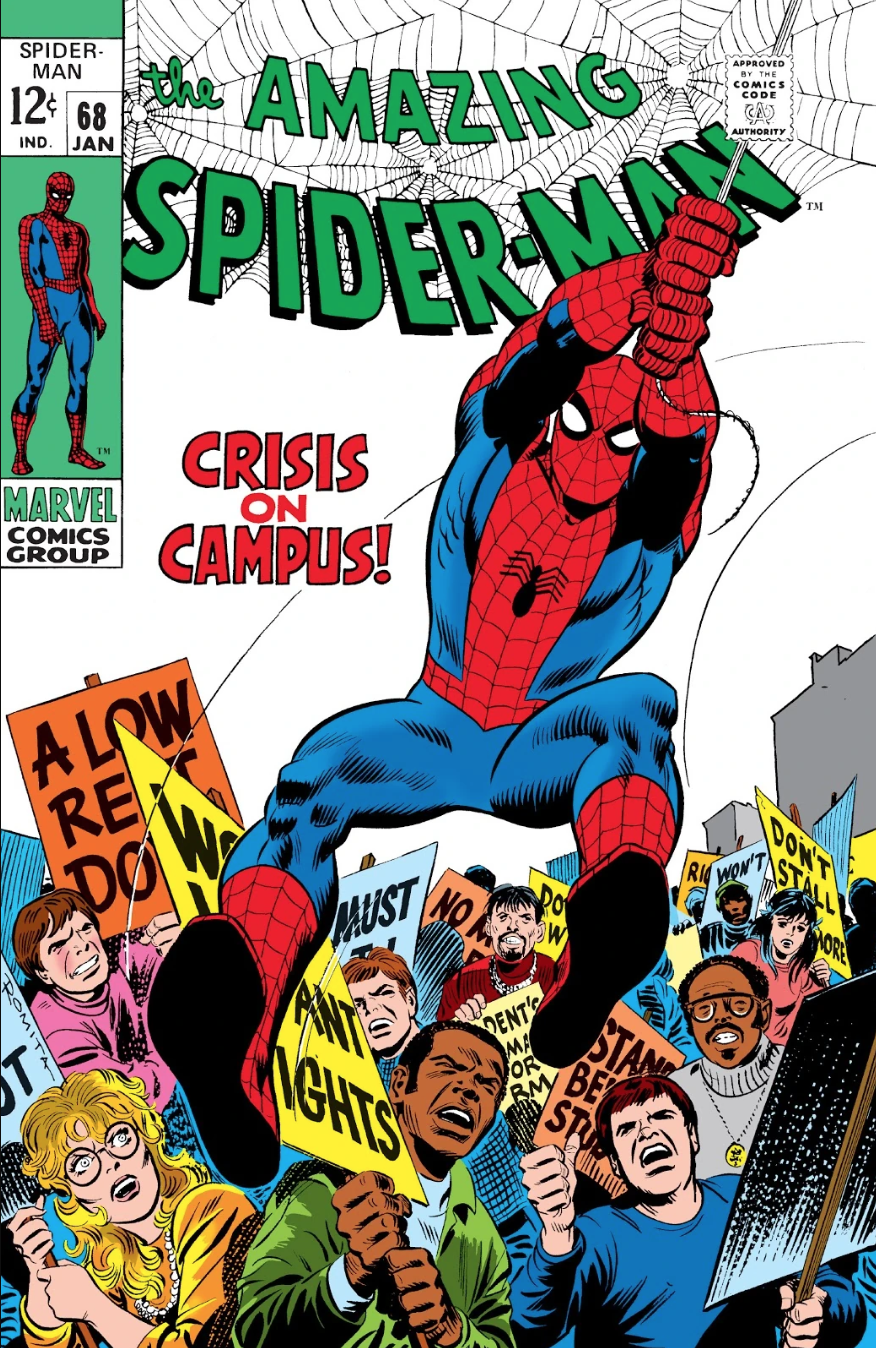
More importantly, as readers age and new readers come aboard, shouldn’t the franchise and characters change to accommodate those new potential readers and the times in which they live? How is a fifteen year old, born in 2008, supposed to relate to Steve Rogers if he’s still being written the same way as he’s been written since 1975, or tackling the same issues? And when a writer takes on a franchised or licensed character like Miles Morales, there’s no way to avoid having their world view affect the way that characters is written. Brian Michael Bendis is a specific person with a specific world view. How can someone possibly expect successive creators who are younger, come from different cultural backgrounds, and have definitely experienced different sorts of lives than Bendis has, to write Miles in exactly the same way Brian did over a DECADE ago in 2011. That’s ludicrous. Times change, the world changes, and with the changing times, comic book creators—whether you like it or not—are grappling with stories about that changing world, as are their readers, some of whom are first arriving—having graduated from middle grade books and graphic novels or coming from superhero movies and television—and many whom are grappling with the same changing world those writers are, as well. If all they get is the same punch-punch-punch Spidey stories, with Peter Parker written exactly as he was in 1963 or even 1986, without any change, emotional growth, political / cultural / societal exploration, then why should fifteen year old readers care? Saying “just write Peter Parker” is insane—what informs Peter Parker? A fictional character doesn’t just write himself, does he? His actions, motivations and conflicts have to be shaped, influenced and crafted by the person telling his story. And if you’re asking a writer to leave out their own influences—write a cookie cutter story based on some emotional, societal, cultural style guide that neglects our changing world and the various factors—including time—which influence the people who live in it, then the end result, my friends, will be dull stories that don’t challenge us as readers and reflect the world in which we live.
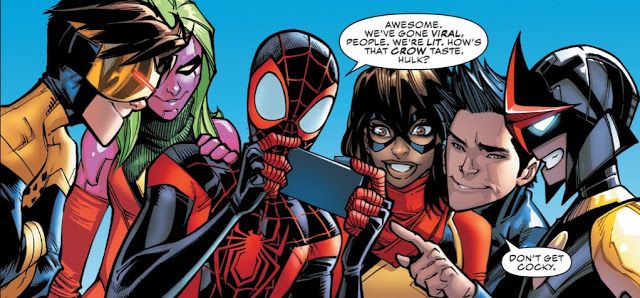
But hey, maybe that’s what some older readers want. They want it the way it was when they were kids. But hey, when those readers die, who’s going to be there to carry the torch? Not my fifteen year old, I’ll tell you that. Not if he can’t see himself in the story. Not if he can’t see the world he lives in reflected on the page. He’s too busy finding that on TV or in video games, folks. Look, you may not agree with a writer’s lived experiences—their “woke” politics, their “invasive” culture, or how their lives are shaped by gender, race and religion—as all of ours are, right? And why should these characters not be shaped by the same factors, as well—but that doesn’t mean the writer should avoid exploring those lived experiences. Otherwise, what’s the point of new stories with these classic characters? How many variations of Batman, the Punisher or Ghost Rider have we gotten over the years? Stories are change. Stories bring conflict. Writers need to allow their own lived experiences to inform that change and conflict. You may not find yourself reflected in that experience, dear reader, but that shouldn’t mean a fifteen year old reader in New Jersey or a twenty-eight year old reader in Los Angeles can’t.
“People grew up loving these characters…we don’t need you to put your input in it.” What the hell do you think a story is, if not shaped by the input by the writer, dude? “You’re writing Tony Stark; you’re not writing yourself in the book.” Who is Tony Stark, if not shaped by the person or people who have written Tony Stark? Only a few characters have the luxury of being written by the same creators for their entire fictional existence. Legacy characters—licensed, franchise characters—have their stories shaped and influenced by a multitude of folks over the years, with many different life experiences. Yes, they’re writing Tony Stark. But if you’re foolish enough to believe every single writer since Stan, from Bob Layton to Matt Fraction to Christopher Cantwell and beyond, has thought to themselves “oh, let’s keep my voice out of it—Tony is a voice unto himself, or until Stan” then you’re absolutely kidding yourself. Change, conflict and the times influence voice, and voice influences character. It’s been like that since John Broom’s Barry Allen picked up a very different mantle in a very different world that Gardner Fox’s Jay Garrick left behind, and it’s never gonna end, even when these characters exist long after we’re all gone.
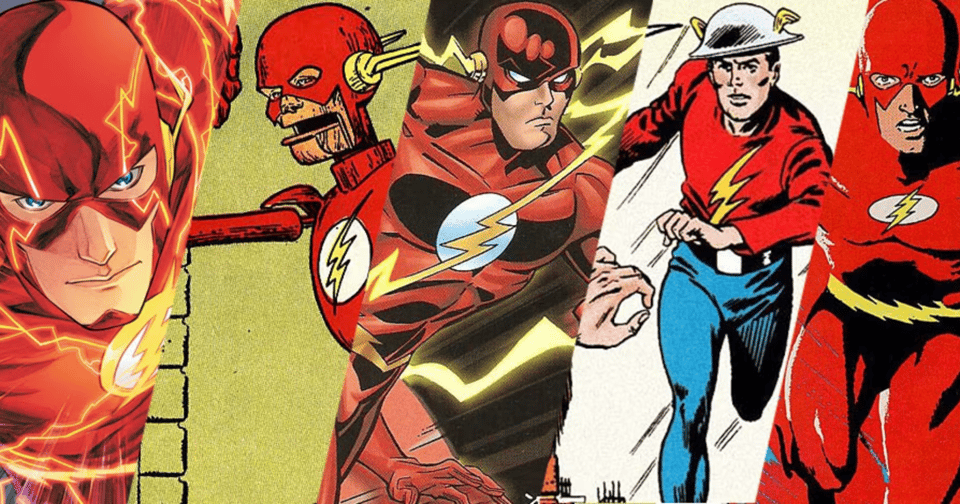
Hey, how cool is it that friend of the newsletter Alex Segura send out a newsletter of his own today talking about writing franchise characters, too? Have a read.
TELLING OTHER MUTANTS’ STORIES: THE PHOENIX CHASE
While we’re talking about writing licensed characters, with December here I’d like to recommend my 2023 book, School of X: The Phoenix Chase, an original X-Men prose novel from Aconyte Books and Marvel, for any ‘Best of 2023’ lists that may be getting put together out there, world, as well as recommend it for your holiday gift lists.

A bit about the book! So, back in 2021 I was invited to submit pitches to School of X, an anthology that Aconyte was putting together based on their out-of-continuity series exploring the X-Men comics circa 2015, as crafted and steered by friend of the newsletter, Brian Michael Bendis. These comics took place after Avengers vs X-Men and the death of Charles Xavier (at the time; it’s okay, he came back), and Aconyte had already put out some successful original novels based on characters available around the time. The anthology was designed to offer a spotlight to some of the younger students filling one of the two mutant schools around in the comics at the time: the new Charles Xavier Institute, co-headmastered by X-Men stalwart Scott Summers, aka Cyclops, and former X-enemy, Magneto. One of my pitches, centered on a divisive character named Quentin Quire (ala “Kid Omega”), was accepted info the novel, and my plan—influenced by recent viewings of Tom Hiddleston as the MCU’s Loki in his Disney+ series—was to write a first-person account of a time-travel joyride from the POV of Quentin, firmly established as a selfish, self-absorbed problem child with millennial leanings, as he learned what it meant to be selfless after observing the emotional growth of his role model, Magneto, former evil mutant and popular icon for mutant revolution and superiority within the comics and continuity.
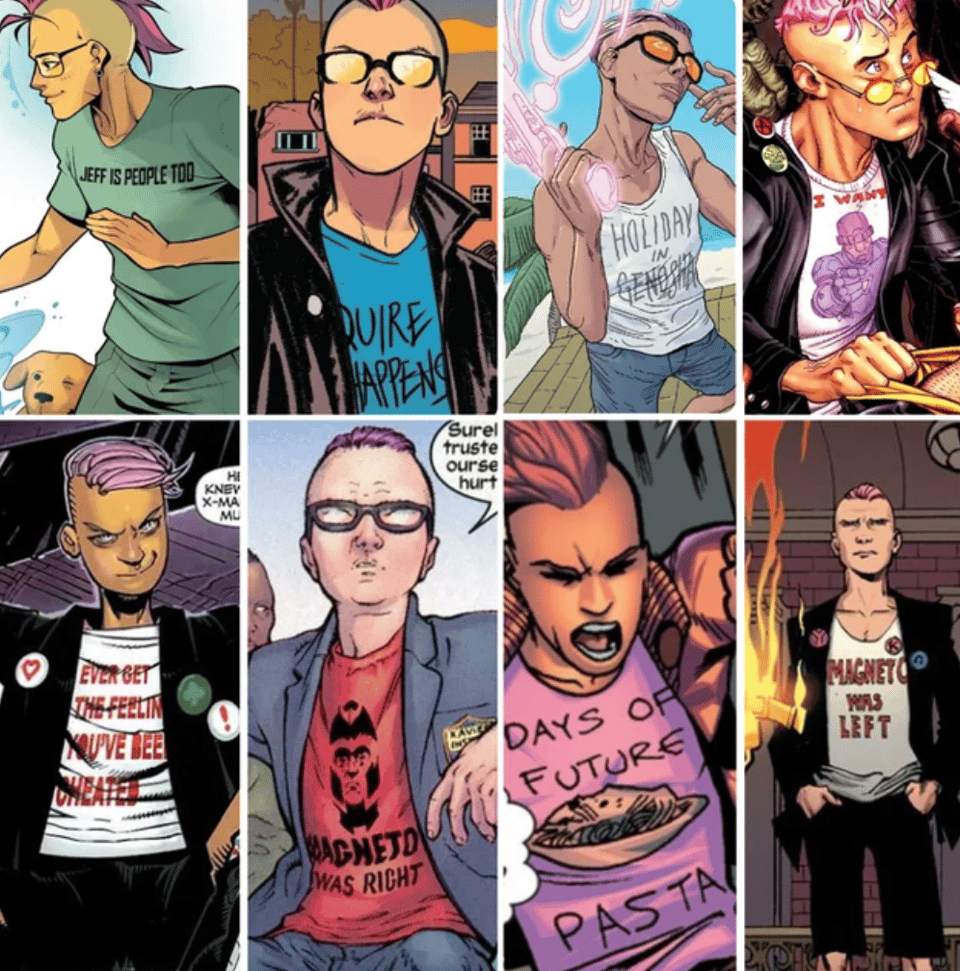
Quentin was a student at the first Charles Xavier School who started a riot after daring to question his teachers’ methods for achieving human / mutant coexistence. Specifically, he asked “Why coexist?” and “was Magneto right?” Over the years, Kid Omega went from rebel to threat to reluctant student and eventually, to hero. As we said above, character growth is motivated by conflict. And, sure: Quentin’s irritating, so plenty of conflict there. But I truly believe his character arc is one of the more fascinating of the younger, next generation of X-Men. He started as a nobody, and then Grant Morrison turned him into a rebel and then a monster, a threat to Charles Xavier’s dream, attacking it from a punk-rock-anarchist-millennial’s point of view before Twitter and Tumblr really became things. Was he a villain? Technically. But no one really labeled him as such — he was just… a problem? A mouthy kid who needed a time-out. Eventually, he bounced between varying levels of nuisance, and then kind of became… comic relief? It’s his formative years, Quentin’s journey from handful to hero, that I wanted to explore. The moments in which he had to learn the value in trusting in those who were very much not Quentin Quire.
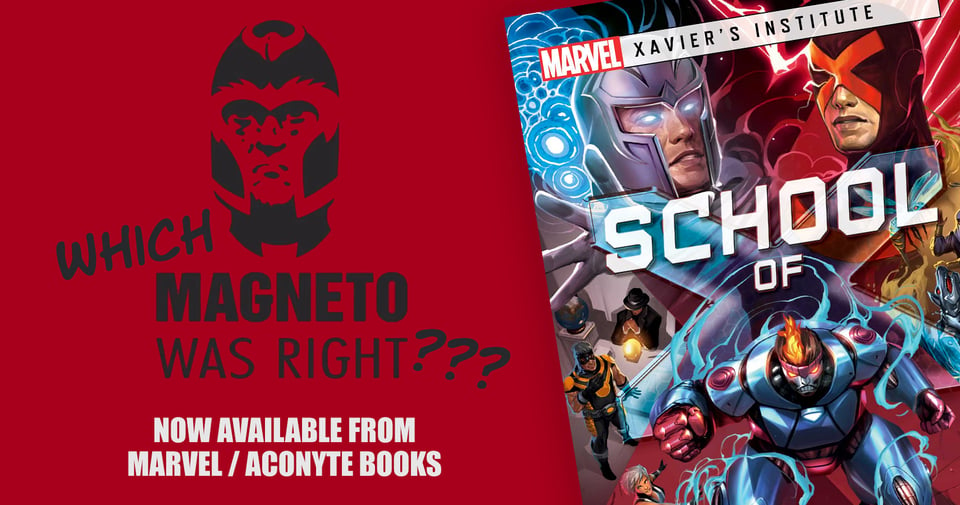
That’s the story I wrote. I penned the outline as I underwent chemo in 2021, and then wrote the story. It came out, and it was nominated for a 2022 Scribe Award (it lost). And that was that.
But I couldn’t get Quentin’s voice out of my head. And I had this whole other story to tell, and characters I wanted to write…so since I always think every shot I get will be my last, I went big and pitched a crazy space adventure. Basically, my X-Men Star Wars road trip space comedy. And I got to write both the Guardians of the Galaxy in the book, as well as the Starjammers, Marvel's less-known, much better group of swashbuckling interstellar space pirates.
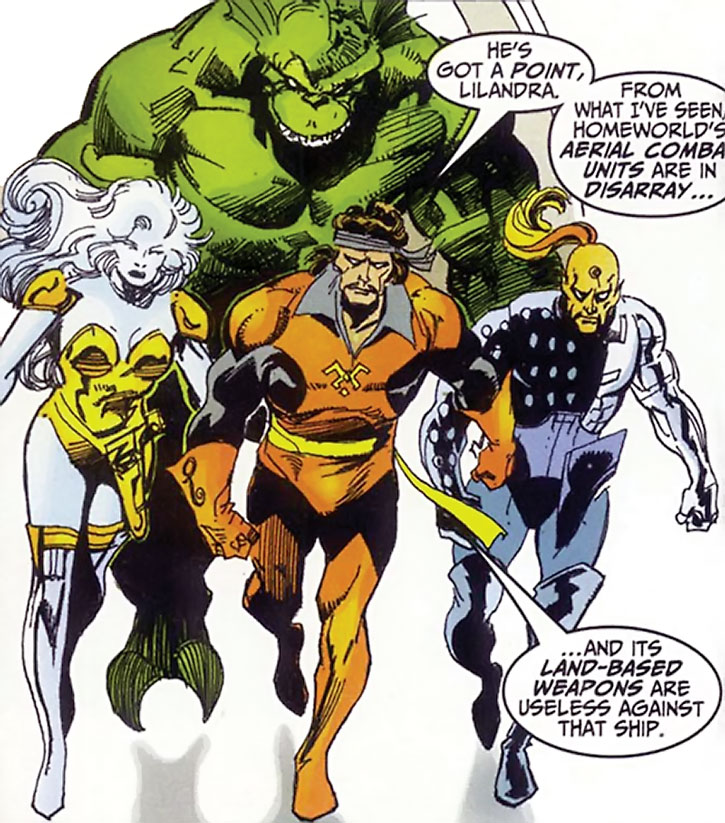
And because it has my voice in it, it’s about legacy—like most of my work is—and it’s about fathers and sons, teachers and students. And in the end, I got to add my voice to the canon, telling a story I needed to tell—adding myself to the stories, the creators and history that has come before. One day, I hope to be able to tell more X-Men stories, maybe even more Quentin stories. Call me, Marvel.
I’ve done a few interviews about The Phoenix Chase, and you can check them out here, here and here if you’re interested in learning more. Please include it in your holiday gift guides and end of year ‘Best Of’ lists, thanks!
TELLING MY STORIES: WHAT NEIL’S WORKING ON
Busy time, but I have a few things in flux right now. We’re wrapping production on the final issue of Nice Jewish Boys along with the digital trade paperback, both hopefully out in March. I’m a little over six thousand words into the new novel, Project Vigilant, and I’m really enjoying how it’s coming along. I’ve been aiming at a thousand words a day, but I need to put in on pause for a week, because I need to distill a longer pitch (‘Project Mountain’) down to a page or two for an editor that wants to see it, and I need to draw our holiday card (we’ll do our holiday edition of this thing next time).
Other than the above, here’s the rest of 2023, creatively:
Start a new comics pitch: ‘Project Unwanted’
Distill my ‘Project Madness’ comics pitch to one page
And here’s my tentative writing plan for 2024:
Finish a first draft of Project Vigilant
Project Baker (a solicited short prose story)
Comics pitches: Project Unwanted, Project Long Ago, Project Burn
Finally finish Book 1 of Project Red (first in a novel series that’s been…dragging)
(Maybe: a new crowdfunded project)
Obviously, as pitches are being reviewed and conversations happening, all of the above might shift and change. I have some other projects—licensed and creator owned—that I really want to do, but none of them are greenlit yet, and all of the above is mostly spec, other than Project Baker. So we shall see, and here’s to the foolhardy ambitious.
OTHER PEOPLE’S STORIES: WHAT NEIL’S WATCHING AND READING
This one went a bit long again, so some bullets:
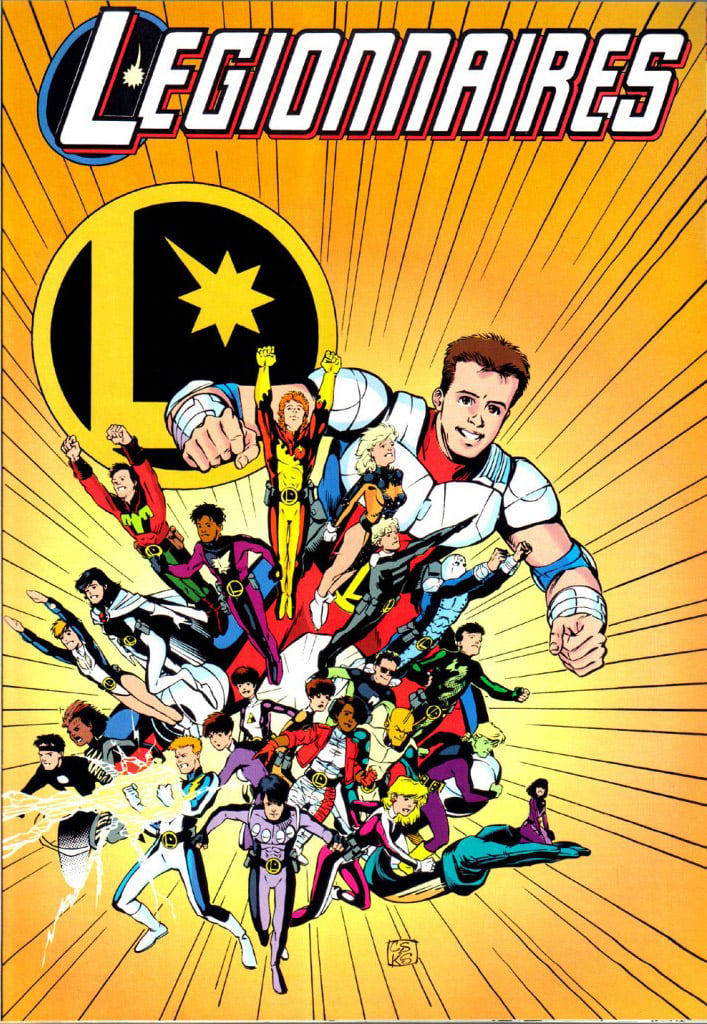
Last year, I went through a huge X-Men read, inspired by the work I did on The Phoenix Chase. I devoured hundreds of collections, and really immersed myself…and now, inspired by a casual read of The Legion of Super Heroes: The Great Darkness Saga, I think I’m going to do the same for the long-running DC Comics powerhouse series, The Legion of Super Heroes, and all its various iterations. Always open to recommendations — which LoSH stories do YOU like best?
Is it, like, Godzilla season or something? There are THREE different ‘zilla-related things to watch this year, including the Matt Fraction helmed Apple TV+ series, Monarch: Legacy of Monsters; the thus-far well-received Godzilla Minus One, which looks fantastic and I am dying to see; and yes, Godzilla X Kong: The Fiery and the Furious (no, that’s not the subtitle; I kid. It's really "This Isn't Rampage."). I can’t wait to watch the first two with my thirteen-year-old G-Fan / giant monster enthusiast son…but I gotta be honest and say how much I’m looking forward to the last one. Those movies are ridiculous. In the last movie (Godzilla v Kong: Dawn of Monster Bros) they gave Kong a giant magic axe. Now? THEY GAVE HIM AN INFINITY GAUNTLET. God, I love these movies. There are THREE different Godzilla projects out this year, each with a different tone, and I am here for it.
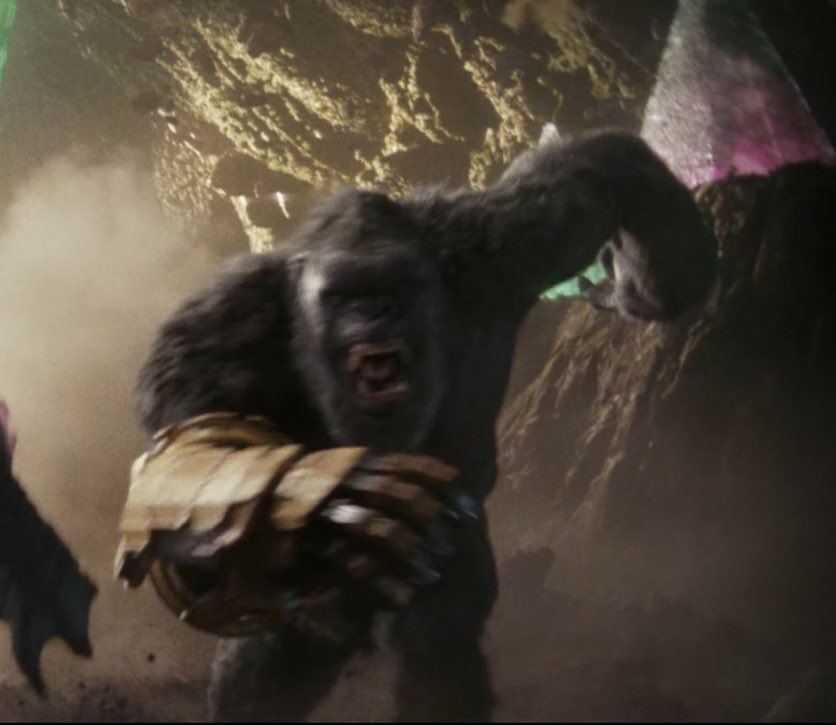
INFINITY KONG IS INEVITABLE Finally, in the late hours of the night I am wrapping up a How I Met Your Mother rewatch, and did you know that Rhys “freaking Stede Bonnet from the amazing pirate TV show Our Flag Means Death” Darby made a brief appearance as a hotel clerk in the final season, in the episode titled “No Questions Asked”? Brilliant. Holy shit, he really was an innkeeper all along.
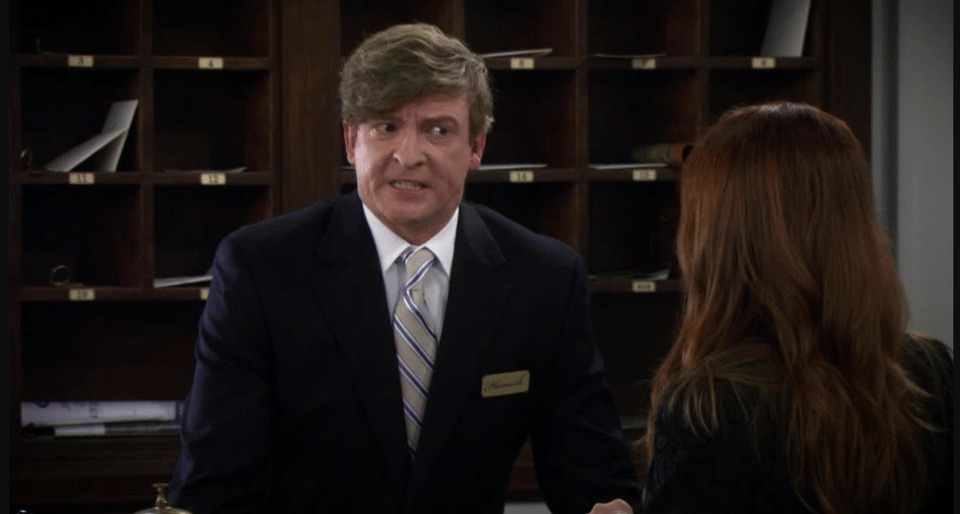
Okay, that’s it from me this time. Thanks for sticking with us in the new digs. Next time we’ll say farewell to 2023 and chat about the future.
Peace, comics and football, friends.
—Neil